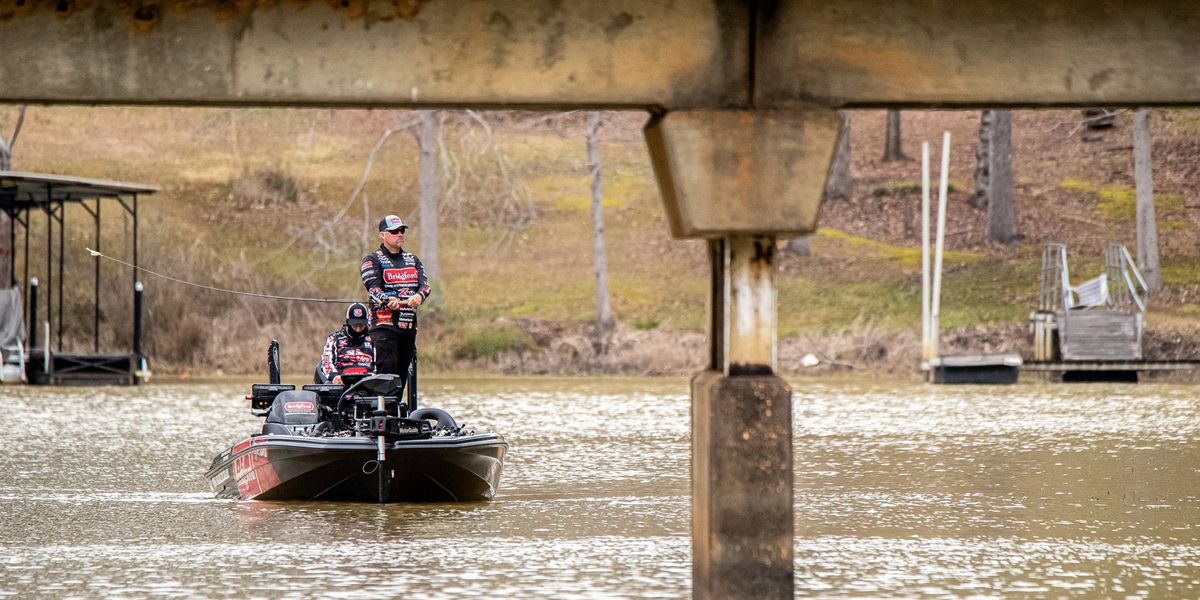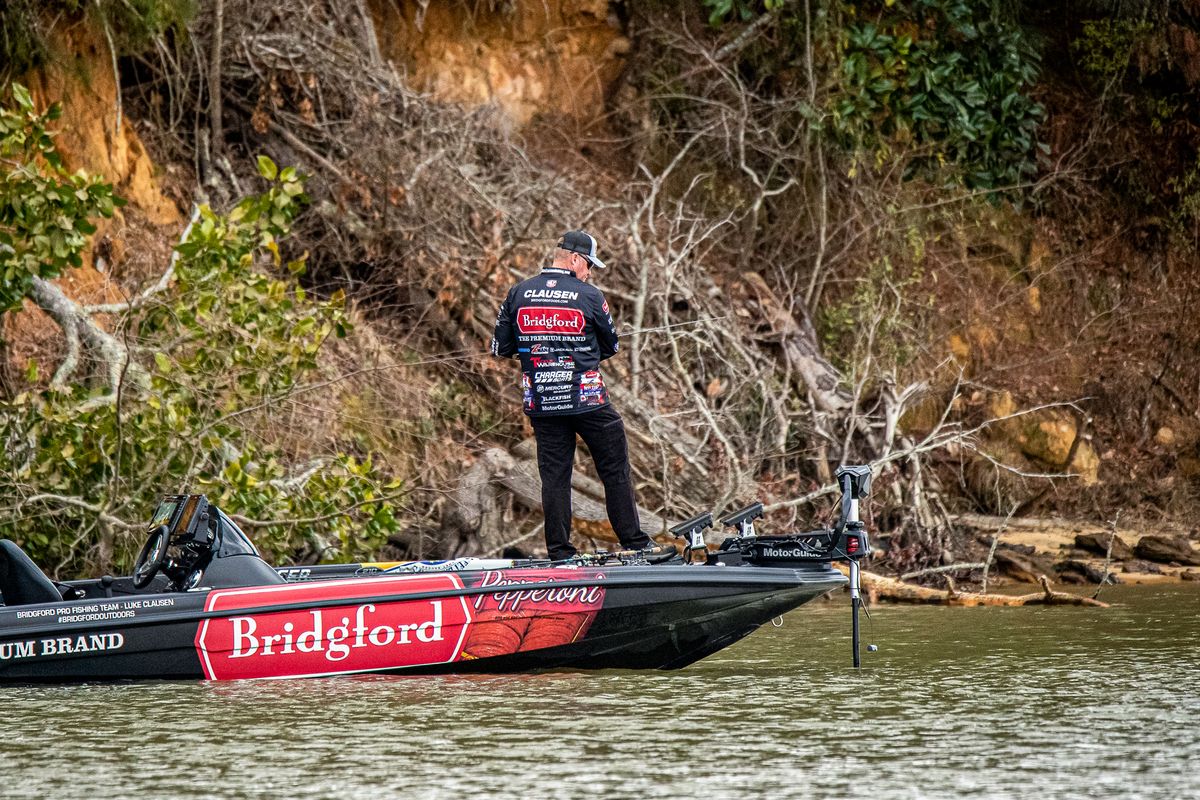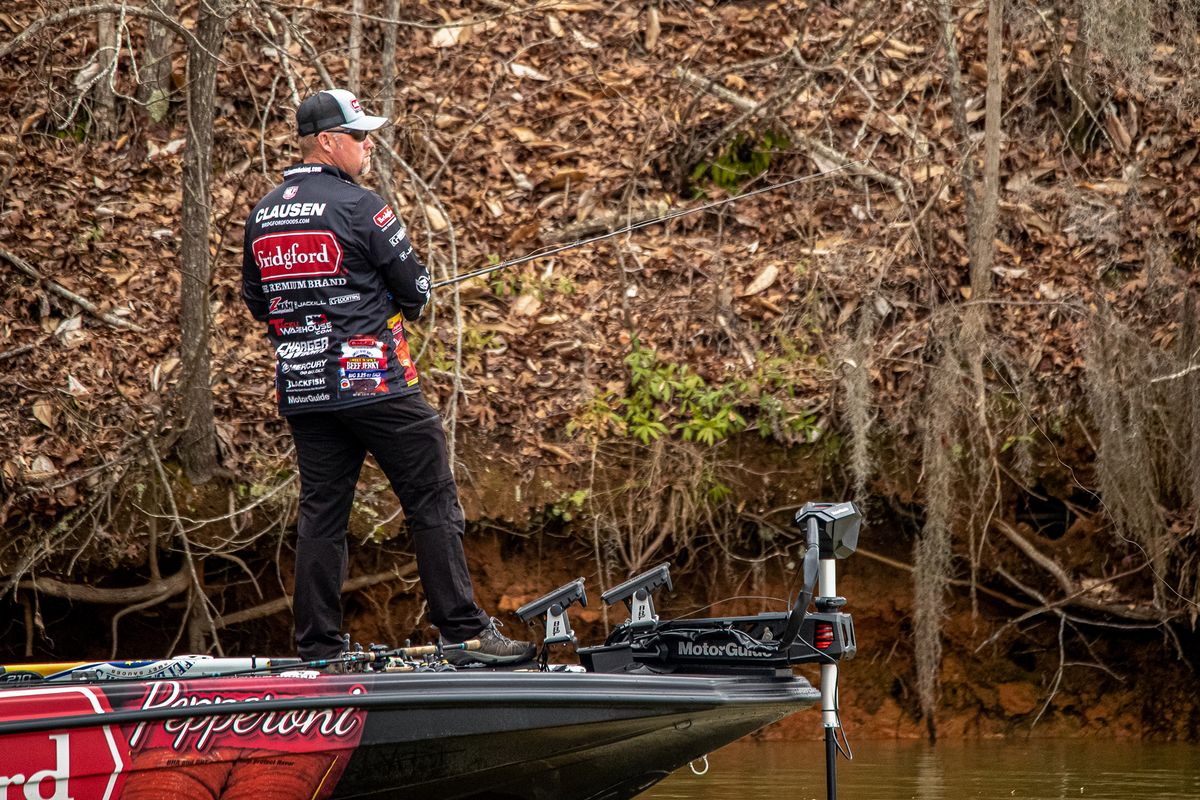Local angling pro prepared for 2021 season
Luke Clausen competes in the REDCREST championship tournament at Lake Eufaula in Eufaula, Alabama in February. (Courtesy Josh Gassmann/Major League Fishing)
While Luke Clausen’s classmates at North Central High School were doing who-knows-what on the weekends, he was driving to California to compete in fishing tournaments.
More than a few years and a few million dollars in winnings later, it’s safe to say the hundreds of hours he’s spent in a boat have more than paid off.
Clausen is entering his 19th season as a professional angler and preparing the start of Major League Fishing’s 2021 Bass Pro Tour, which begins later this month.
The fisherman paused his preparations for the season to speak by phone with The Spokesman-Review from his Otis Orchards home last week.
Clausen has traveled the country to fish and lived in cities like Atlanta, Chattanooga, Tennessee, and Nashville, Tennessee, but he was raised on the lakes and rivers of the Inland Northwest and returned to live here more than a decade ago.
Back when he was just beginning to compete, bass fishing had yet to take hold in the Northwest.
“Bass fishing was kind of an unknown thing … if I saw a boat driving down I-90, I knew who it was,” Clausen said. “Back then, people thought, ‘You’re going to fish for bass for a living?’ ”
It’s a living, all right.
Clausen’s tournament earnings have totaled more than $2.5 million .
And he has his eyes set on more.
This year’s tour begins with Stage One at Sam Rayburn Reservoir, a tournament in Jasper, Texas, that runs March 21-26. Those hoping to find it on TV will have to wait, as the tournament will be broadcast in two 2-hour blocks by the Discovery Channel, starting at 4 a.m. on Aug. 28, according to a Major League Fishing news release.
Fishing fans can track Clausen’s progress and that of the 75 other anglers in the field on Major League Fishing’s website, majorleaguefishing.com, throughout the season.
The winner of each of the tour’s seven stages earns a $100,000 prize.
If the season is a success, Clausen will qualify for Major League Fishing’s REDCREST championship in 2022, which carries a $300,000 top prize.
At this point in his career, Clausen is accustomed to living two lives – one in Washington and one on the road. Despite having moved back to Eastern Washington years ago, Clausen’s truck and boat stay parked throughout the year on the other side of the country.
For much of the next several months, he’ll basically live out of his truck, bouncing from tournament to tournament. (No, he doesn’t sleep in it). He flies out to Texas early next week.
An avid hunter, the end of hunting season means it’s time for Clausen to begin preparing for the fishing season. Just getting organized is a fairly significant undertaking, as he may fish 10 to 15 venues.
The schedule remains packed despite the pandemic, which has tweaked the way Major League Fishing operates but hasn’t slowed it down much.
Fishing is one of the few sports that hasn’t been radically altered by the coronavirus. There isn’t a much better sport in which to partake during a global health crisis.
The Recreational Boating and Fishing Foundation reported an estimated 3.1 million people tried fishing for the first time in 2020, the most in five years. It estimated that 50.1 million people fished last year, the highest figure in more than a decade.
“If anything, it’s helped the industry,” Clausen said of the pandemic. “There’s been a lot of new people getting involved.”
Aside from cancellations early in the pandemic, not much has changed from the competitors’ standpoint. There are only two other people on the boat with Clausen as he’s fishing – including an official – who are both wearing masks.
Suffice to say, fishing isn’t a popular sport for in-person spectators, so the empty stadiums of sports like baseball and football weren’t a factor.
It’s a tight, competitive field.
At Clausen’s level, he said, competitors are fairly even in terms of technique. They can all cast and bait with the best of them. Instead, the competition usually comes down to the “millions of decisions subconsciously” made throughout a tournament, and the hope “to make more right ones than the other guy.”
When to change a technique or the color of bait can just be a gut feeling.
“It’s not really scientific or technical, a lot is just on instinct,” Clausen said.
Fishing isn’t just a job for Clausen.
When he was younger, Clausen estimated he would fish about 250 days a year. Now, with a wife and kid, he doesn’t get out quite as much but still loves to fish.
Despite all his travels, Clausen still enjoys fishing around Eastern Washington – walleye fishing a little bit in the Columbia River, Lake Coeur d’Alene, and many of the smaller lakes in the region.




